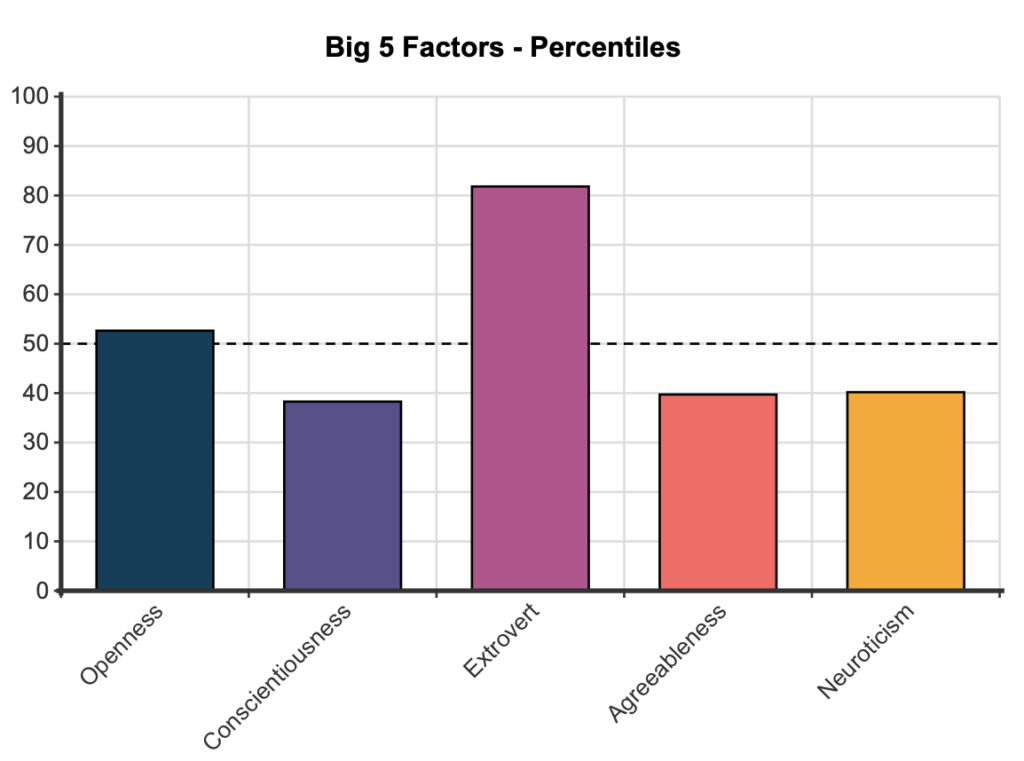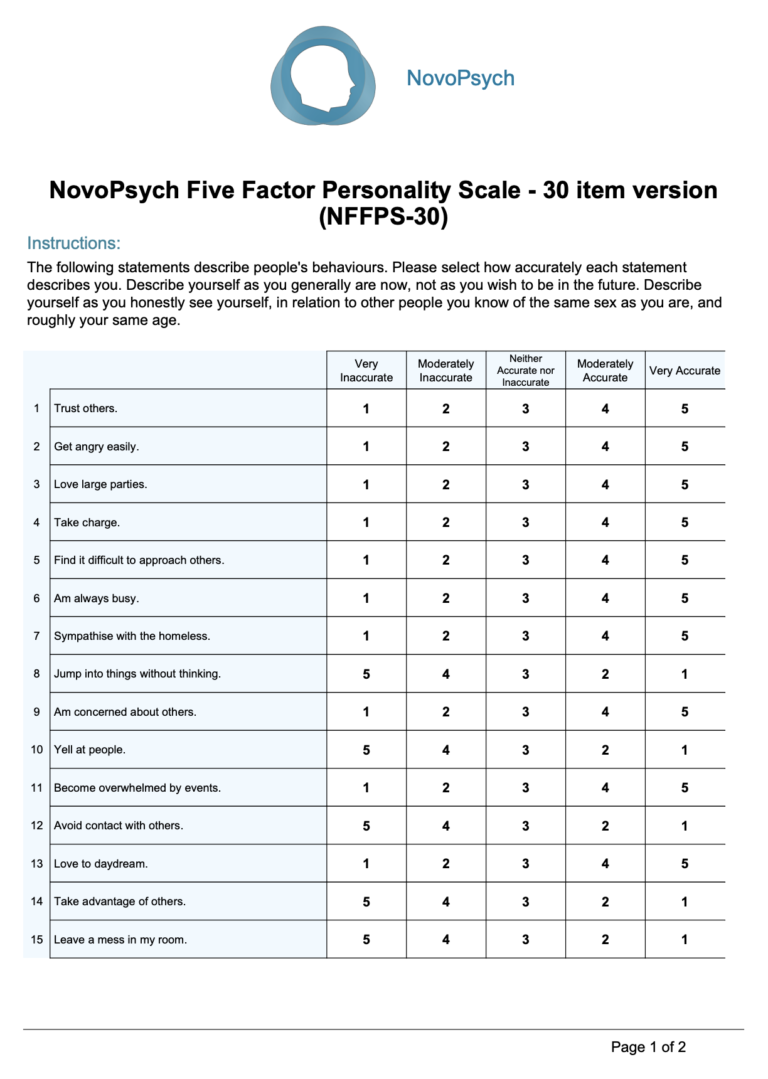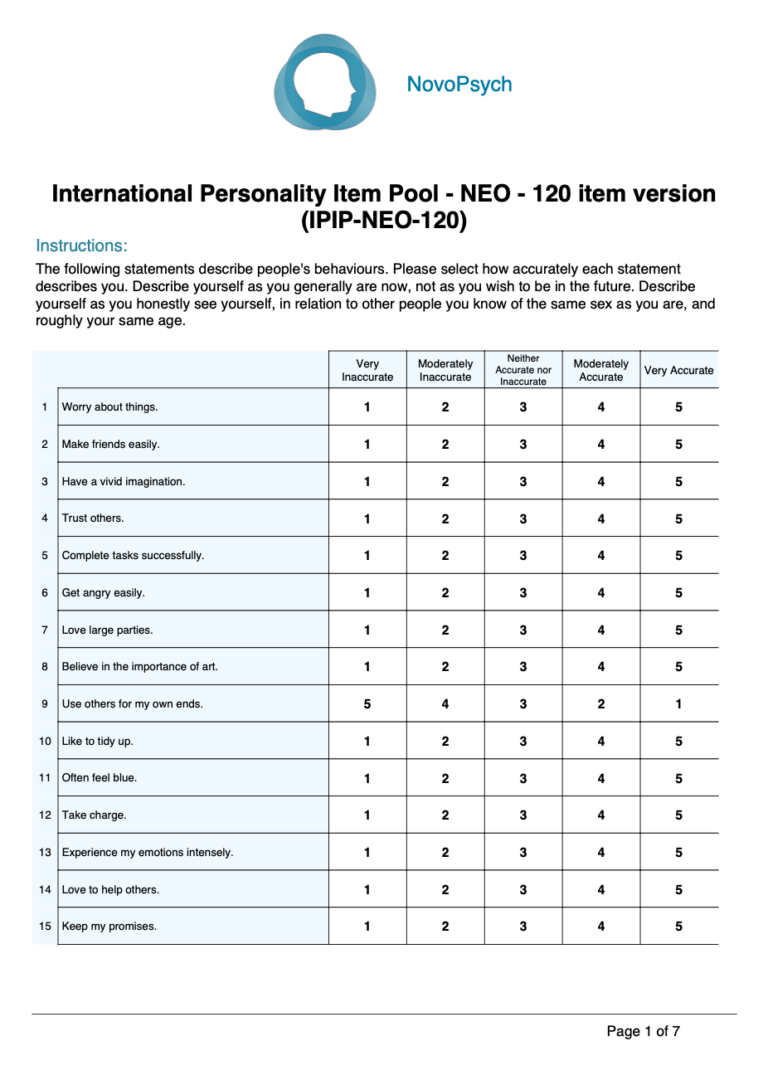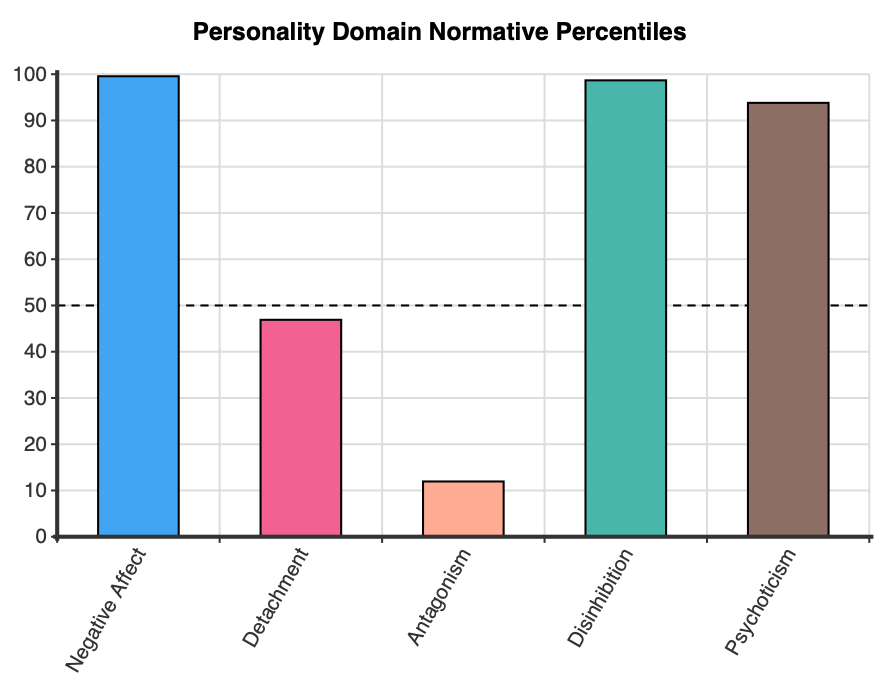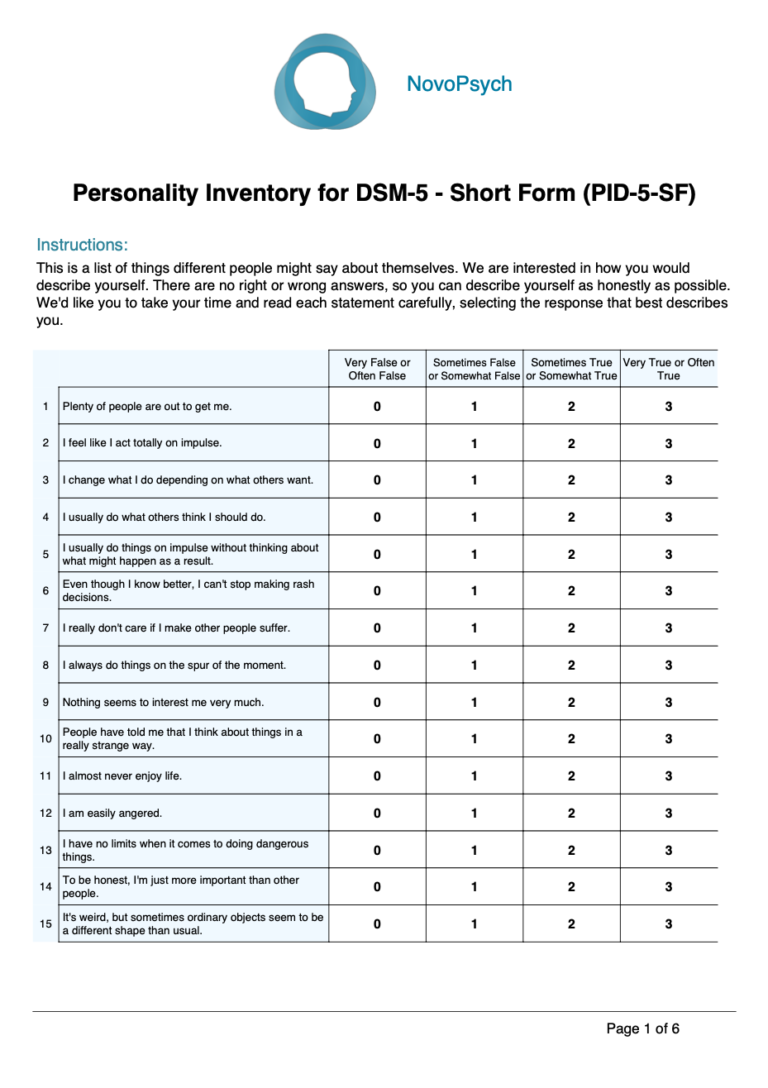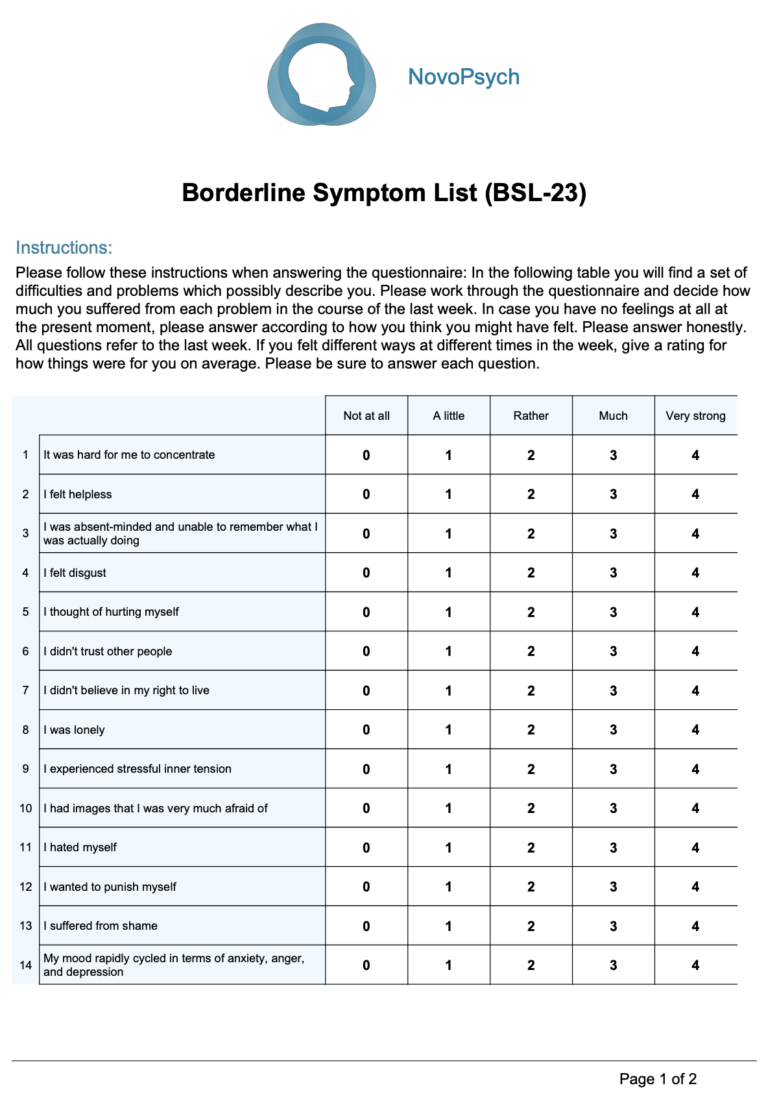NovoPsych provides you with a comprehensive suite of tools for the assessment of a client’s unique personality traits. From measuring normal variations in personality traits with measures of the Big Five, to assessing for personality pathology, our library helps resource clinicians to holistically assess clients across a spectrum of traits
Measures of the Big Five Personality traits
- NovoPsych Five Factor Personality Scale – 30 item version (NFFPS-30)
- International Personality Item Pool – Neuroticism, Extraversion, Openness – NEO – 120 item version (IPIP-NEO-120)
Assessments of personality pathology:
The Big Five Personality Traits (OCEAN)
The Five-Factor model of personality is the most validated conceptualisation of individual difference and can help clinicians identify strengths and weaknesses, and provide useful stimulus for a client’s self-reflection.
A great way to refresh your memory of the Big Five is by taking the assessment yourself. Self-administering assessments help you learn about the scale at the same time as reflecting on aspects of yourself.
NovoPsych Five Factor Personality |
International Personality Item Pool –
NEO – 120 item version (IPIP-NEO-120)
The (IPIP-NEO-120) is a 120-item self-report personality inventory measuring the five-factor model of personality (a.k.a OCEAN) and their associated facets:
- Openness – The degree to which an individual is creative and imaginative or conventional and grounded. Made up of imagination, artistic interests, emotionality, adventurousness, intellect, and liberalism facets.
- Conscientiousness – The measurement of an individual’s ability to control their impulses. Made up of self-efficacy, orderliness, dutifulness, achievement striving, self-discipline, and cautiousness facets.
- Extraversion – The extent to which someone is out-going and enjoys interacting with the external world. Made up of friendliness, gregariousness, assertiveness, activity level, excitement seeking, and cheerfulness facets.
- Agreeableness – The measure of social harmony, non-confrontation & cooperation that an individual may pursue. Made up of trust, morality, altruism, cooperation, modesty, and sympathy facets.
- Neuroticism – The amount of negative feelings/emotions an individual may feel. Made up of anxiety, anger, depression, self-consciousness, immoderation, and vulnerability facets.
|
Personality Inventory for
DSM-5 – Short Form (PID-5-SF)
The (PID-5-SF) is a measure designed to assess dysfunctional personality traits according to the conceptual framework proposed in the Diagnostic and Statistical Manual of Mental Disorders, Fifth Edition, Text Revision (DSM-5-TR).
The PID-5-SF presents personality traits in two district methods. An empirically derived framework with five personality domains, and a seven personality domains framework that aligns with DSM-5-TR conceptualisation of personality pathology.
Borderline Symptom List (BSL-23)
The Borderline Symptom List – Short Version (BSL-23) is a 23-item self-rating instrument for specific assessment of borderline personality disorder (BPD) symptomatology in adults (18+). The scale assesses DSM borderline personality disorder diagnostic criteria (e.g., affective instability, recurrent suicidal behaviour, gestures, or threats, or self-mutilating behaviour, and transient dissociative symptoms).
Individuals with high scores on the BSL-23 are more likely to have BPD and associated challenges with managing emotions, self-image, relationship issues, and general functioning in everyday life.
Should you have any questions or require further information, please don’t hesitate to reach out. Our support team is always available to assist you.



